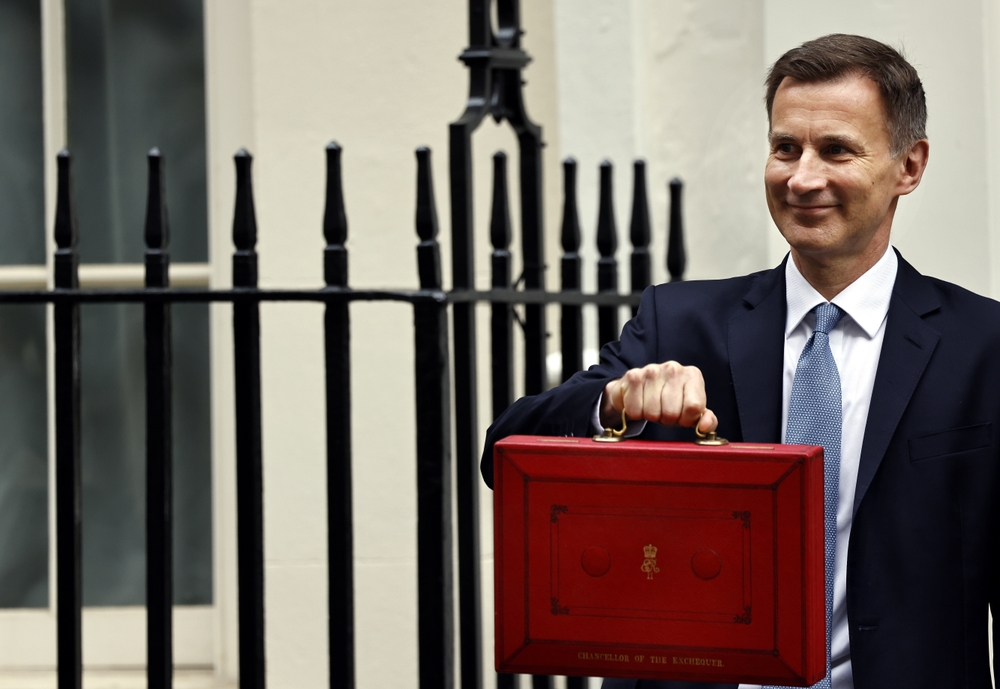News
Spring Budget 2023: All the key announcements at a glance

A big change to the childcare system, scrapping the pensions lifetime allowance, and an extension to the Energy Price Guarantee were all confirmed in the Budget today.
The Chancellor, Jeremy Hunt, also announced that fuel duty would remain frozen, alcohol duty will be hiked from August and a planned rise to corporation tax would go ahead.
These measures were all confirmed in the Spring Budget today which the Chancellor called “a budget for growth”.
In the middle of a cost-of-living crisis, the Chancellor also said inflation is set to fall to 2.9% by the end of the year, from a peak of 10.7% in the final quarter of 2022.
Here we look at all the key points announced in the budget today.
The UK economy
The Office for Budget Responsibility (OBR) has predicted that the UK would not enter into a recession this year, with a contraction of 0.2%, which is a revision of up to 1.2% compared to the organisation’s November forecast.
The UK economy is then expected to grow by 2.8% and 2.5% in 2024 and 2025 respectively, as interest rates fall and energy price drops take inflation below its 2% target.
Pensions
The pensions lifetime allowance, which is the maximum amount you can save into a pension without paying an additional tax charge, will be scrapped from 6 April 2023.
It currently stands at £1,073,100 but was hacked from £1.8m in 2012, before being frozen by the then Chancellor Rishi Sunak with this lower figure due to remain until 2026.
The annual pension allowance was also increased from £40,000 to £60,000. This is the amount of money everyone can put away each year without being taxed.
Energy bills
The Energy Price Guarantee (EPG) will be frozen at its current level of £2,500 until June, saving households from paying average bills of £3,000.
Bills are still expected to rise thought, with households having to find an extra £67 a month after the Energy Bills Support Scheme ends in March.
Childcare costs
The 30-free hours of childcare system is to be extended to children aged nine months from September 2025. It will be introduced from April 2024, as 15 free hours to children aged two and over.
The money providers receive from the government for free childcare hours will also increase, although some campaigners have said this will not meet the current financial shortfalls.
Ratios will change, from four two-year old children to one staff members to five children to one staff member from September 2023.
Families who receive Universal Credit will be paid upfront for childcare support, and the maximum amount available has increased.
Grants of £600 will be paid to those entering the childcare sector.
Fuel costs
A rise to fuel duty was cancelled and it was frozen for the 13th year in a row. The 5p per litre discount for fuel, which is currently in place, will remain until March 2024 collectively saving drivers around £5bn.
Fuel duty is levied at a flat rate of 52.95p per litre for both petrol and diesel and it was expected to rise to 57.95p per litre.
Alcohol and tobacco
Alcohol duty will be frozen until August, when it will rise by an average of 10.1%. Draught relief will rise from 5% to 9.2% for beer and cider and from 20% to 23% for wine and spirits.
The duty applied to draught beers sold in pubs will be 11p cheaper than the duty placed on these drinks when sold in supermarkets.
The duty on tobacco will rise by the RPI rate of inflation, plus 2%, adding almost 15% and around £1.75 to a pack of cigarettes. For hand-rolling tobacco the duty will rise by RPI plus 6% and these changes take place from 6pm today.
Corporation tax
The amount of corporation tax for companies with over £250,000 in profits pay will rise to 25%, from 19%, from April.
The ‘Super-deduction’ tax-relief scheme, due to end on 31 March, will be replaced with the introduction of ‘full expensing’ from 1 April for three years. This allows companies to write off the full cost of ‘IT equipment, plants or machinery’ against taxable profits in the year of investment, instead of over the life of the asset.